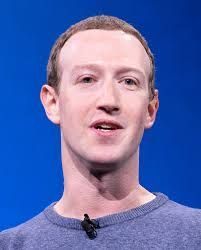"I think we’re basically moving from being Facebook first as a company to being metaverse first."
Mark Zuckerberg in an interview with The Verge, October 2021
In the spring of 2022, the Metaverse was gearing up to change the landscape of the Internet. For marketers, the opportunities for brand expansion seemed endless. A few months later, it all faded away.
In late 2021, the reality of the Metaverse becoming an actual reality captured the imagination of brands and consumers alike. Companies scrambled to establish themselves in this wild digital frontier. Some taking extreme steps, like appointing "Chief Metaverse Officers" to lead their virtual strategy.
Luxury brands were particularly interested in making their mark. Gucci sold a virtual Dionysus handbag on Roblox for over $4,000—surpassing the price of its in-real-life (IRL) counterpart.
Tiffany & Co. introduced "NFTiffs," virtual necklaces modeled after the CryptoPunks NFT series. The necklaces initially sold for around $50,000 each, generating over $12 million for the company.
Decentralized gaming platforms, such as Decentraland and The Sandbox, became hot-spots for exploring the new virtual Wild West. In 2017, Decentraland raised $26 million in its initial coin offering (ICO - the IPO for virtual currencies). By 2022, the platform had a market valuation of $1.2 billion.
Brands viewed these virtual worlds as untapped markets, much like the dot-com rush of the late 1990s. They saw opportunities for innovative marketing strategies and new ways to interact with their customers.
In arguably the boldest move related to the Metaverse's upswing, Mark Zuckerberg announced that Facebook would be rebranding to Meta in October of 2021. The rebrand was an effort to match Zuckerberg's ambition to expand the friend-finding platform beyond social media and position the company as a leader in immersive digital experiences.

"I think we’re basically moving from being Facebook first as a company to being metaverse first."
Mark Zuckerberg in an interview with The Verge, October 2021
In December 2021, not long after Facebook announced its new name, the Cryto Winter began. Spanning almost 13 months, the cool down of cryptocurrency had a direct, negative effect on the Metaverse gaming platforms that were gaining speed. Then, in November 2022, a new player in the virtual world would go mainstream and swiftly change the landscape of business operations, refocusing strategies across the world.
As the cold crypto winter settled in, the limitations of the Metaverse started to become apparent. Despite its billion-dollar valuation, Decentraland reportedly had only 38 active users in a 24-hour period in 2022. Even when Decentraland disputed these figures, claiming around 8,000 daily active users, the number paled in comparison to traditional gaming platforms. For context, the 2009 game Left 4 Dead 2 had over 18,000 concurrent players on Steam during the same period.
This stark contrast raised questions about the Metaverse's ability to sustain user engagement. In some areas of the platform, it felt like a virtual ghost town. Land parcels that were once bought at hefty prices by speculators were left empty and undeveloped. Technical issues further hampered the user experience. Without a fast gaming laptop to run the program, the experience was slow and glitchy most of the time.
For marketers, it became increasingly challenging to justify continued investment in a platform that struggled to retain an active user base. The notion that "if you build it, they will come" wouldn't suffice. As the love affair with a massively open virtual playground for brands waned, ChatGPT announced itself to the world in November 2022, effectively ending the Metaverse frenzy.
The advent of advanced AI technologies and the release of platforms like ChatGPT captured the attention of the tech industry, the public, and the marketing world. Recognizing the practical applications that AI could have for streamlining operations, enhancing customer experience, and generating content, marketing departments that had previously invested in the Metaverse began reallocating resources toward AI. Open positions for Metaverse-related roles were quickly replaced with ones that focused on tasks such as prompt engineering. While Metaverse platforms still had their hardcore fans and users, corporate America marketing departments decided on a different direction.
Today, the Metaverse exists in a semi-state of dormancy. The initial rush of brands and marketers may have subsided, but the technology that underpins the concept of the Metaverse continues to evolve. Virtual Reality is becoming a more accessible and practical bridge between the physical and digital worlds. Companies are investing in things like smart glasses that aim to seamlessly integrate digital experiences into everyday life. Meta and Ray-Ban have collaborated on AI Glasses that allow someone to do things like ask questions and get answers in real-time through their sunglasses.
This bridging of the virtual and physical world through more compact and accessible technology is gaining traction, and addresses some of the engagement challenges faced by the Metaverse. These advancements will provide a more tangible and user-friendly experience, something that could increase adoption of the Metaverse in the future.
There's a distinct possibility that the Metaverse could experience a resurgence in the future. While it may have been a little before it's time in 2021, the thought of an ever expanding digital playground for brands is a testament to the ever-evolving nature of digital marketing. The key lies in staying adaptable and being will and able to experiment with new platforms as they mature and our audience adopts them.
For marketers, the lessons learned from the Metaverse experience should help us inform future strategies, ensuring that we remain agile and responsive to the next wave of technological transformation.
We'll see what the future holds for the Metaverse. As for AI, the technology the swooped in and stole all the Metaverse thunder, our spring eBook covers everything marketing and sales enablement professionals need to know. It launches this Friday, but you can sign up here to receive your copy early.